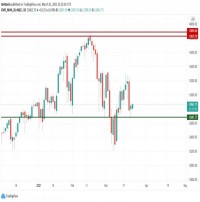|
Opalesque Industry Update - The Joseph Saveri Law Firm filed an antitrust class action lawsuit on behalf of a class of retail investors in federal court against 35 defendants, including Robinhood, E*TRADE, TD Ameritrade, Melvin Capital, Citadel, Sequoia Capital, and others. The plaintiffs allege that they and other retail investors continue to be injured due to a large, overarching conspiracy among the defendants to stop them from buying stocks in open and fair public securities markets.
Plaintiffs contend that the purpose and effect of the scheme was to shield hedge funds, venture capitalists, and institutional investors from massive losses they had exposed themselves to due to their highly speculative short selling strategies. Plaintiffs bring claims under the federal and state antitrust laws as well as other state laws and common law. The retail investors held shares in twelve companies: GameStop (GME), AMC Theaters (AMC), American Airlines (AAL), Bed, Bath and Beyond (BBBY), Blackberry (BB), Express (EXPR), Koss (KOSS), Naked Brand Group (NAKD), Nokia (NOK), Sundial Growers Inc. (SNDL), Tootsie Roll Industries (TR), and Trivago N.V. (TRVG). Several large hedge funds and investment firms, including defendants Citadel and Melvin Capital, possessed massive "short" positions in these relevant securities. "Short" sellers borrow shares or other interests in corporate stock, securities, or other assets. In so doing, they bet that prices of the securities will decrease. If the stock prices in fact drop, a short seller buys the stock back at a lower price and returns it to the lender. The difference between the sell price and the buy price is the profit. Short sellers essentially bet on a stock's failure or decline rather than its success or increase. Retail investors correctly identified that the relevant securities were undervalued. In fact, as the plaintiffs allege, the short positions were over-leveraged as much as 140%, such that institutional investors could not close their positions. These retail investors then began purchasing "long" positions in these companies, driving stock prices upward, resulting in great losses to those invested in short positions. Short sellers were caught in a classic "short squeeze." When the price of an asset rises, short sellers normally face pressure to buy back stock to exit their short positions and mitigate their losses. Instead, as part of the scheme, hedge funds and others holding short positions publicized the relevant securities as being less valuable than retail investors believed. When retail investors continued to acquire shares and drive prices even higher, hedge funds and others faced potentially disastrous exposure when required to cover their short positions. On January 28, many brokerages abruptly and unilaterally restricted retail investors' ability to buy long positions-in some cases removing the option to buy shares of the relevant securities while openly permitting them to sell their existing shares or prohibiting users from viewing the tickers for some or all of the relevant securities. Even those retail investors who had queued orders overnight to purchase stock when the markets opened on January 28 discovered that their purchase orders had been cancelled without their consent. The coordinated prohibition on buying any new shares of the relevant securities eventually led to a massive sell-off and a steep decline in share prices. While retail investors continued to be prohibited from purchasing securities at the reduced price, institutional investors were permitted to buy securities at the artificially reduced price, closing their short positions. "Rather than use their financial acumen to compete and invest in good opportunities in the market to recoup the losses in their short positions, or paying the price for their highly speculative bad bets, these defendants instead hatched an anticompetitive scheme to limit trading in the relevant securities," says Joseph Saveri, counsel for the plaintiff retail investors. "It is unlikely that such a widespread ban among brokerages would have been achievable without a concerted effort in violation of antitrust laws." Plaintiffs seek to recover damages, as well as injunctive relief, on behalf of themselves and the proposed class, from the defendants. The case is Cheng, et al. v. Ally Financial Inc. et. al., case number 21-cv-00781, in the U.S. District Court for the Northern District of California. Article source - Opalesque is not responsible for the content of external internet sites |
Industry Updates
Short squeeze stockbrokers and hedge funds face proposed antitrust class action
Wednesday, February 03, 2021
|
|





 RSS
RSS








